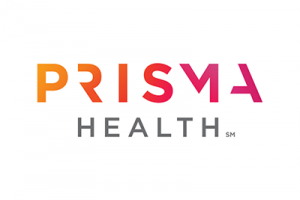Prisma Health provides tips on prostate cancer screening in recognition of Prostate Cancer Awareness Month
October 1, 2019In recognition of Prostate Cancer Awareness Month in September, Prisma Health wants to give men tips on what they need to know about prostate cancer screening.
Timothy Averch, M.D., Palmetto Health-USC Urology, said, “Prostate cancer is the second leading cause of cancer deaths among men, with about 30,000 men dying each year. One in nine Caucasian men and one in six African American men will be diagnosed. But if detected early it’s very treatable.”
Averch said there are several factors that increase a person’s risk for prostate cancer. They include:
- Being a man.
- Age – older men are more at risk.
- Race – African American men are twice as likely to develop prostate cancer.
- Family history – having a sibling, father, uncle or grandparent with prostate cancer increases your risk.
- Exposure to agent orange – from being in the military.
“The tricky part is prostate cancer really doesn’t have any symptoms, so we rely on screening. If you’re 55-69 years old, you want to be screened for prostate cancer or at least have that discussion with your doctor. A screening involves a simple blood test and a digital rectal exam.
Averch acknowledged that many men see the screening recommendations as a moving target. “Even with a prostate cancer diagnosis, most men will live with the cancer and not die from it. It’s a very slow-growing cancer in general, so we want to make sure we’re picking out the right patients who will benefit from screening – again, those are men 55-69 years old. If you have any higher risk, such as if you’re an African American man or you have a direct relative who has prostate cancer, you should definitely have a discussion with your doctor about screening while you’re in your forties.”
The good news is if prostate cancer is caught early, it’s very treatable and there are several treatment options available. “The most common treatment option these days is active surveillance, where we keep an eye on it and recheck it periodically. Most don’t progress. But if treatment is necessary, robotic surgery and radiation therapy are options, as well as new specific cancer targeting therapies that are coming to our area,” Averch said.
The most important thing men should do is talk to a primary care doctor. Averch emphasized, “Just have that conversation with your provider and ask if a screening is something you should do,” he said.
For more information about Palmetto Health-USC Urology, visit https://phuscmg.org or call 803-434-4790.



















